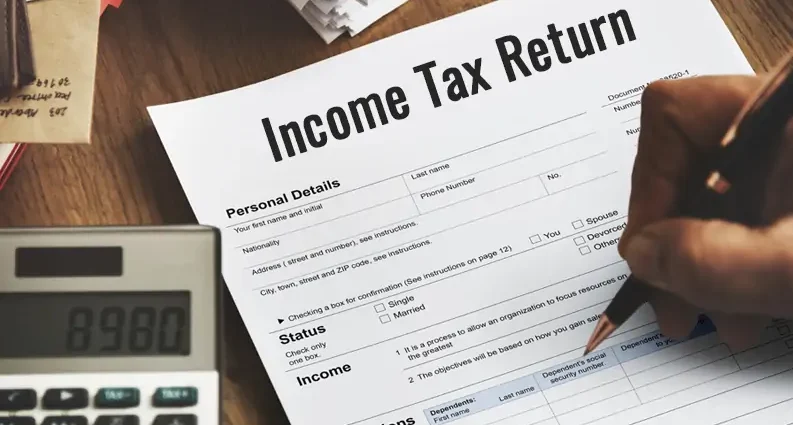செவ்வாயன்று உச்ச நீதிமன்றம், வருமான வரி வருமானம் (ITR) தரப்பினரின் உண்மையான வருவாயைப் பிரதிபலிக்கவில்லை என்றும், திருமண விஷயங்களில் [கிரண் தோமர் மற்றும் மற்றவர்கள் vs. உத்தரப் பிரதேச மாநிலம்] தரப்பினரின் மனுதாரர் வருவாயை தீர்மானிப்பதில் துல்லியமான வழிகாட்டியாக இருக்க முடியாது என்றும் உறுதிப்படுத்தியது.
திருமண தகராறுகளில் உள்ள தரப்பினர் தங்கள் வருமானத்தை குறைத்து மதிப்பிட முனைகிறார்கள் என்று நீதிபதிகள் DY சந்திரசூட் மற்றும் ஹிமா கோஹ்லி ஆகியோர் குழு கண்டறிந்தது, எனவே குடும்ப நீதிமன்றங்கள் அவர்களின் உண்மையான வருமானத்தை தீர்மானிக்க விரிவான மதிப்பீடுகளை மேற்கொண்டன.
“வருமான வரி வருமானம் தாக்கல் செய்வது எப்போதும் உண்மையான வருமானத்தை துல்லியமாக பிரதிநிதித்துவப்படுத்துவதில்லை என்பது தெளிவாகிறது. ஆதாரங்களின் முழுமையான மதிப்பீட்டில், விண்ணப்பதாரர் ஏற்கனவே வைத்திருக்கும் நிலைக்கு ஒப்பிடக்கூடிய அளவில் வாழ உதவும் வகையில், இரண்டாவது பிரதிவாதியின் உண்மையான வருமானம் என்ன என்பதையும் தீர்மானிக்க வேண்டியது அவசியம்,” என்று நீதிமன்றம் கூறியது.
இந்த ஆண்டு மார்ச் மாதம், வழக்கின் இரண்டாவது பிரதிவாதியான கணவர், தனது மனைவிக்கு மாதத்திற்கு ரூ.20,000 மற்றும் அவரது மகள்களுக்கு தலா ரூ.15,000 குழந்தை பராமரிப்பு வழங்க குடும்ப நீதிமன்றம் உத்தரவிட்டது.
அவரது மாத வருமானம் 200,000 ரூபாய்.
அவரது கணவர் தாக்கல் செய்த மேல்முறையீட்டில், அலகாபாத் உயர் நீதிமன்றம், ஐடிஆரின் படி, அவரது கணவரின் மாத வருமானம் அவரது ரூ.37,500 என்று கண்டறிந்தது.
எனவே, குடும்ப நீதிமன்றத்தால் ரூ. எவ்வாறு உருவாக்கப்பட்டது என்பதை விளக்க முடியவில்லை என்று கண்டறியப்பட்டது.
இந்த உயர் நீதிமன்றத் தீர்ப்பை எதிர்த்து உச்ச நீதிமன்றத்தில் மேல்முறையீடு செய்யப்பட்டது.
குடும்ப நீதிமன்றத் தீர்ப்பை ரத்து செய்ய உயர் நீதிமன்றத்திற்கு அதிகாரம் இல்லை என்று உச்ச நீதிமன்றம் தீர்ப்பளித்தது.
குடும்ப நீதிமன்றத்தில் அவருக்கு ஏன் முக்கியத்துவம் அளிக்கப்பட்டது என்பதை அவர் புரிந்து கொள்ளத் தவறிவிட்டார் என்று உயர் நீதிமன்றம் கூறியது, அதில் அவரது கணவரின் ஐடிஆரில் அவரது தந்தையுடன் ஒரு தொழிலில் இருந்து வரும் வருமானம் சேர்க்கப்படவில்லை என்பதும் அடங்கும்.
மேல்முறையீட்டு அதிகார வரம்பின் அளவுருக்கள் குறித்து உச்ச நீதிமன்றம் அறிந்திருக்க வேண்டும் என்று உச்ச நீதிமன்றம் கூறியது.
குழந்தைகளின் தேவைகள் முழுமையாக பூர்த்தி செய்யப்பட வேண்டும் என்றும் கூறினார்.
தாமதக் கட்டணங்களை ஜீவனாம்சமாக செலுத்துமாறு உச்ச நீதிமன்றம் உத்தரவிட்ட முந்தைய தடை உத்தரவை அவரது கணவர் பின்பற்றத் தவறிவிட்டார் என்றும் வணிக சபை கண்டறிந்தது.
“வழக்கமாக இரண்டாவது பிரதிவாதிக்கு எதிராக ஒரு தடை உத்தரவை பிறப்பிக்கும் போக்கை நாங்கள் கொண்டிருந்திருப்போம், ஆனால் அவருக்கு மற்றொரு வாய்ப்பு வழங்குவதற்காக நாங்கள் ஒரு நிபந்தனை தடை உத்தரவை பிறப்பிக்கிறோம்,” என்று நீதிமன்றம் கூறியது. .
நீதிமன்றம் இந்த வழக்கை மறு விசாரணைக்காக உயர் நீதிமன்றத்திற்கு மாற்றியது, ஆனால் நிலுவைத் தொகையை ஆண்டு இறுதிக்குள் செலுத்த வேண்டும், இல்லையெனில் அவரது கணவர் உயர் நீதிமன்றத்தில் தாக்கல் செய்த மேல்முறையீடு தள்ளுபடி செய்யப்படும் என்று தெளிவுபடுத்தியது.
கூடுதலாக, உயர் நீதிமன்ற நடவடிக்கைகளின் போது வழக்கமான குழந்தை பராமரிப்பு தொகையும் வழங்கப்படும் என்று நீதிமன்றம் தெரிவித்துள்ளது.
விண்ணப்பதாரர் சார்பாக மூத்த வழக்கறிஞர் ரவி பிரகாஷ் மெலோத்ரா ஆஜரானார். அவரது கணவர் சார்பாக அவரது மூத்த வழக்கறிஞர் பிரியா ஹிங்கோலானி ஆஜரானார்.
